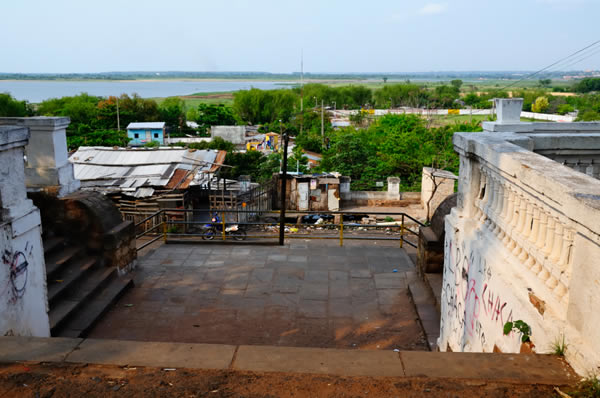
In just under a week I fly out to Paraguay on a trip that has been several months in the making. I’ll be joining a friend in some volunteer work, where I will be working with some of the poorest communities in Asuncion, Paraguay’s capital city.
I’m completely not prepared for this. I don’t think you can prepare for a trip like this.
For starters, Paraguayans don’t speak English. Yo no tengo mucho español. (For those of you following at home, that means ‘I don’t speak much Spanish’, or more realistically, ‘I will probably have to resort to Pictionary if I want to order a burrito’.*) Pero estoy aprendiendo con un libro de frases en español y traductor Google!
I am lucky enough to live in a country that, despite currently being run by a guy who thinks that Jesus doesn’t want asylum seekers to show up here**, has a thriving economy and is largely very safe. I don’t need to worry where my next meal is coming from, or whether I’m going to catch rabies from my cat. My biggest concern some days is whether or not I have time for my morning coffee on my way to my permanent job. I make more in one week than the average Paraguayan would make in a month.
I drove to school in the fog this morning, heater turned way up, casting pitying glances at the poor schmucks shivering at the bus stop. About half of my conversations with my colleagues went along the lines of:
“Wow, it’s a bit chilly today!”
“Yeah, totally. I didn’t want to get out of bed this morning!”
It was true – I really, really didn’t want to leave my nice warm bed, with its nice warm doona. I didn’t want to step into the hallway and be a bit cold for the five minutes it takes to get into the shower. I didn’t want to walk the 20 metres from my front door to my 2012 Mazda3 and sit in the drivers’ seat while the heater kicked in. But then, I told myself to get over myself. Paraguay doesn’t get the kind of winters that Canberra does, but the people I will be working with don’t have doonas, or running water for showers. They don’t have shiny new cars. At the moment the vast majority of them don’t even have access to permanent shelter.
There has been a bit of flooding in Asuncion recently. And by ‘a bit’, what I actually mean is, ‘about 100 000 residents have been displaced and that number will probably rise higher’. The relief work is being largely spearheaded by volunteers because the Paraguayan government won’t actually get off their backsides to help, unless they can make some sort of political gain from it.
My previous overseas excursions total two: 5 days in Bali (where I ran the gauntlet of drunk Australian tourists), and 10 days in New Zealand (where I ran the gauntlet of New Zealand locals, who were very friendly and laid back and probably not as drunk). I have never been to a developing country. I have never been anywhere that required vaccination against Typhoid and Hep A and Yellow Fever. I didn’t even get the dreaded ‘Bali belly’ when I was there.
I checked the Smart Traveller website to see what I was in for. The section on Paraguay advised me to ‘exercise a high level of caution’ due to the levels of crime. So, no walking outside alone at night. No getting into taxis on the street (I have to call them first). Wear bags across my body. My South American buddies warned me not to look like a tourist – yep, my blue eyes and light coloured hair is definitely going to help me there – and try to blend in as much as possible. The citizens of many South American nations view all ‘gringos’ as rich, stupid and easy to take advantage of.
So, this trip will probably be the bravest, scariest, most challenging thing I have ever done in my life up until this point. And yes, that includes spending 10 months in a burns unit. How the hell do you prepare for a journey that you know, in every fibre of your being, is going to change the way you think about every aspect of your existence?
…well, if you’re me, you write about it. I’ll be posting some pieces while I’m there.
Niki van Buuren is a Canberra-based writer, teacher and gringo with poor Spanish skills.
*My friend has since informed me that I am unlikely to find a burrito in Asuncion, which makes this statement entirely redundant. But my point remains.
**Seriously.





















